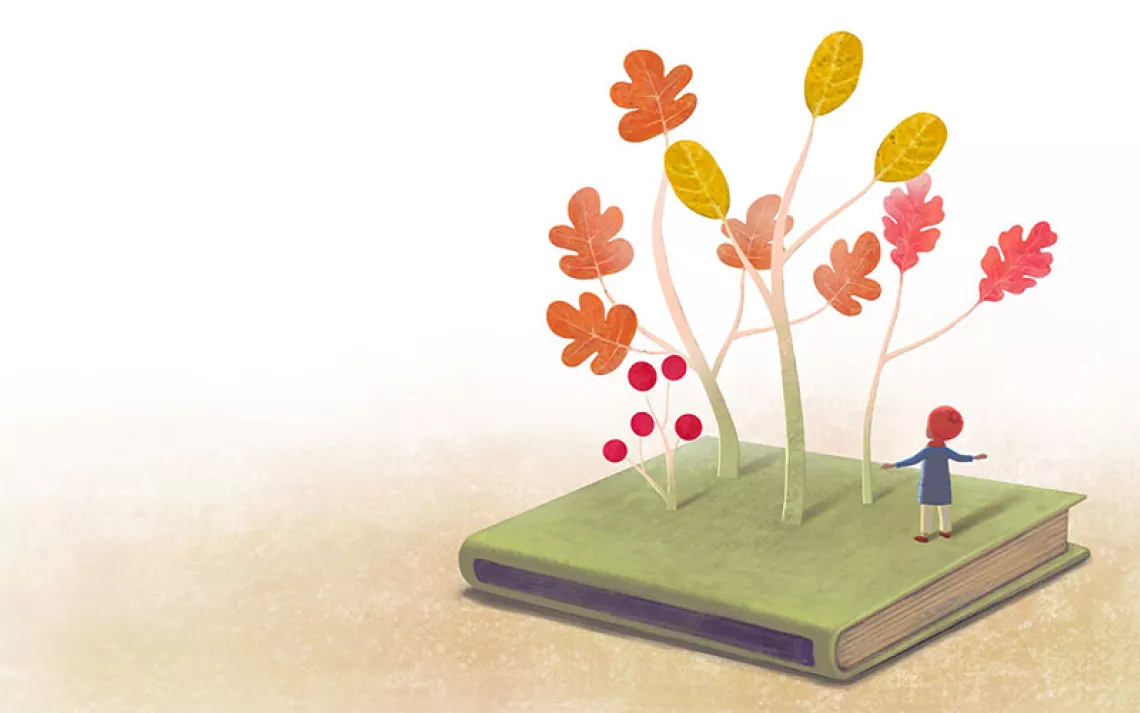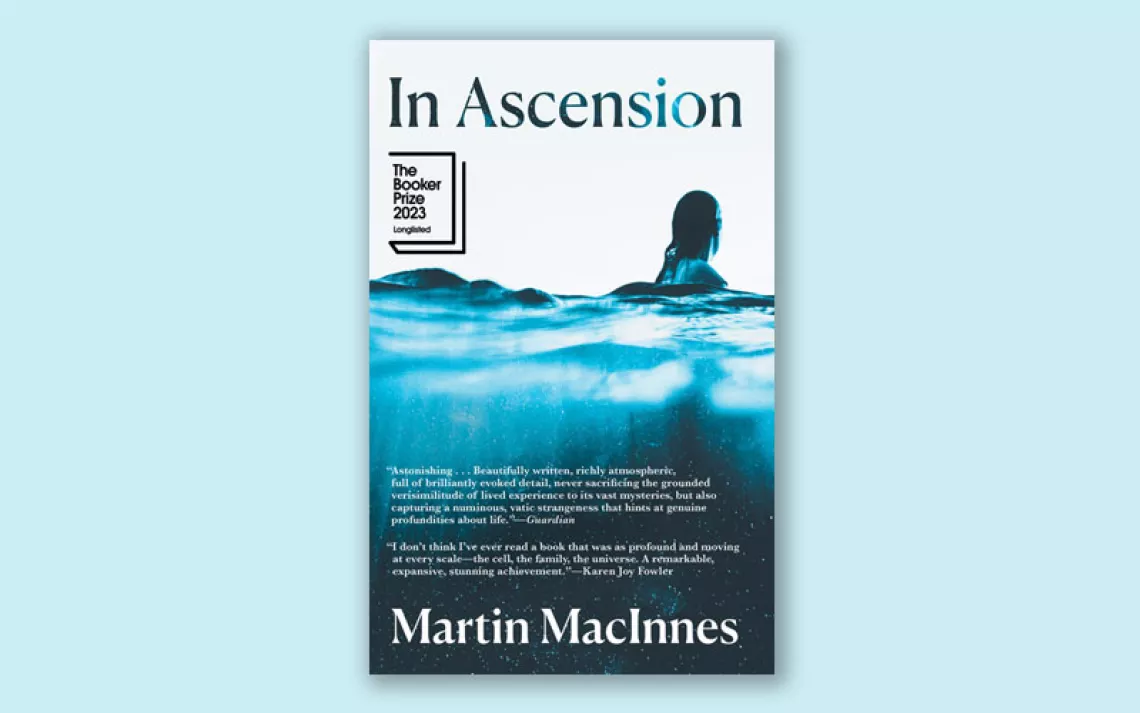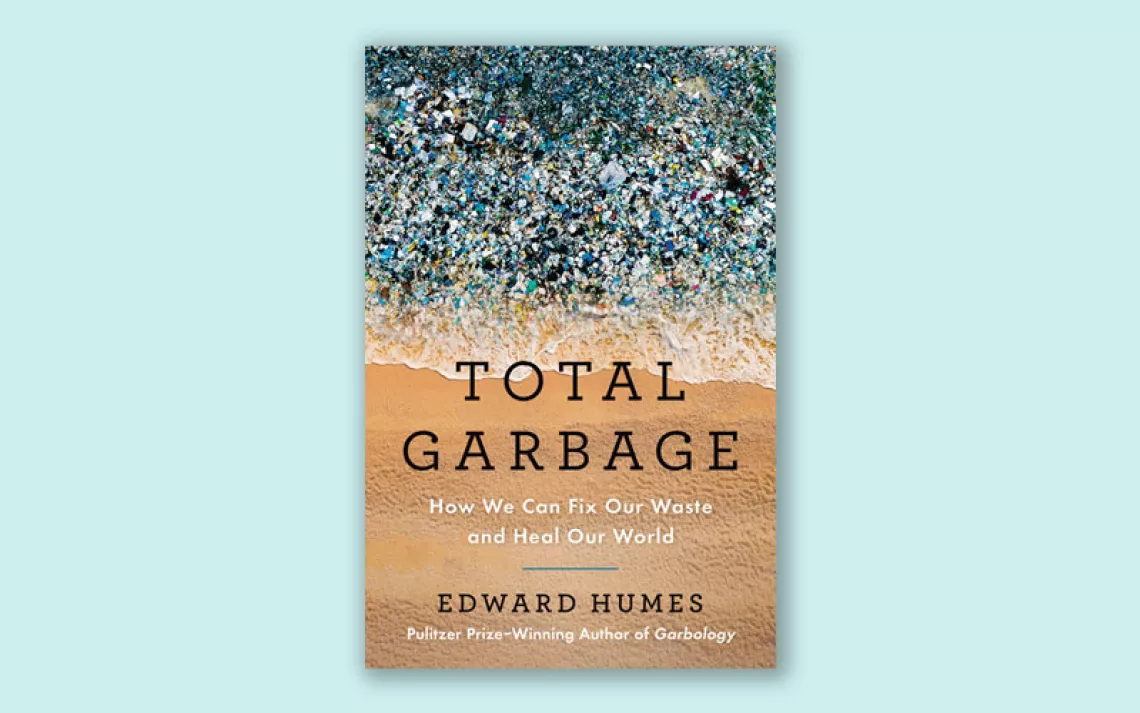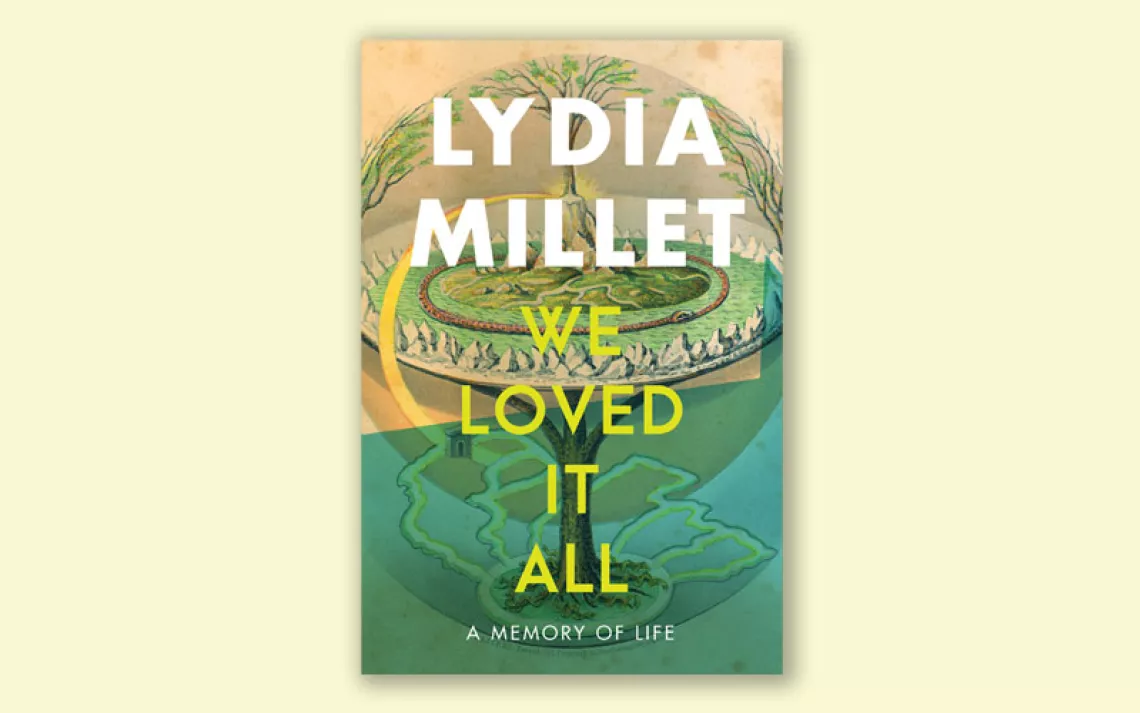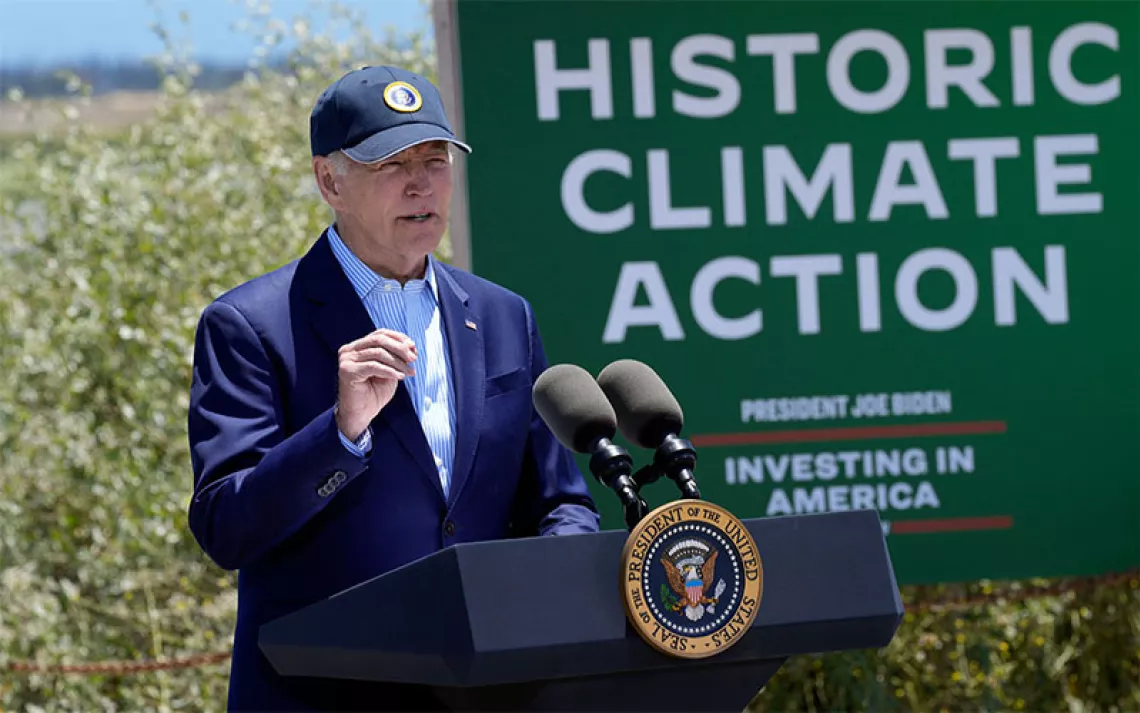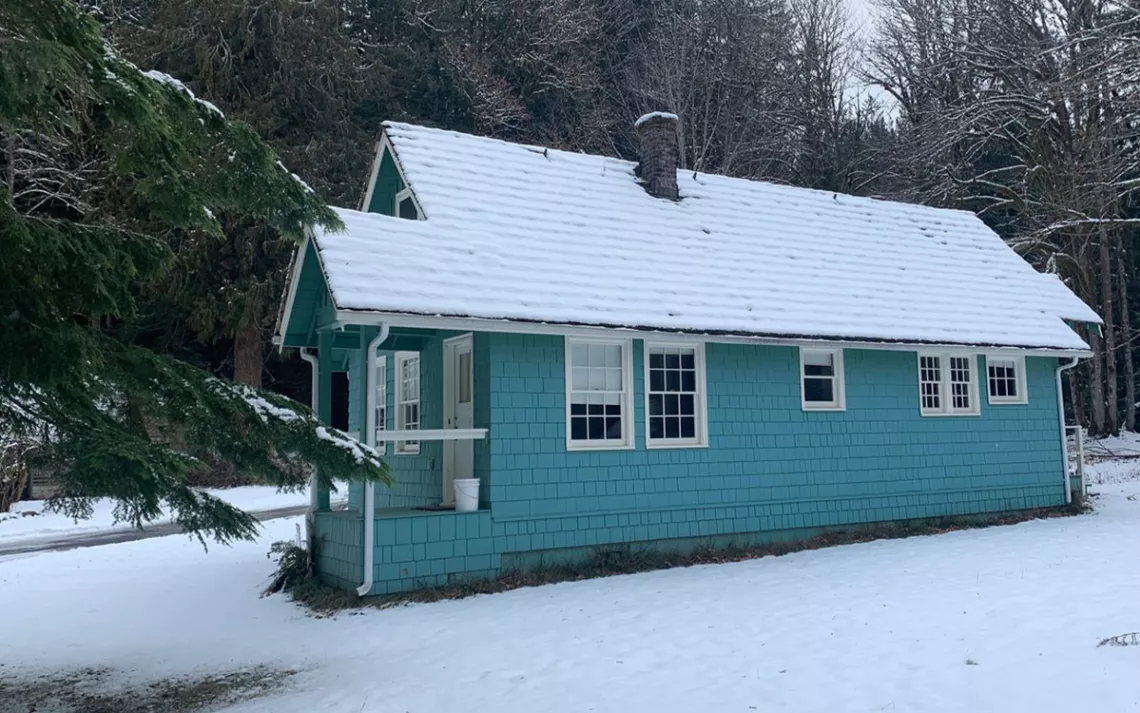A Cultural Dementia
Offering care to those we love is one way of defending Earth
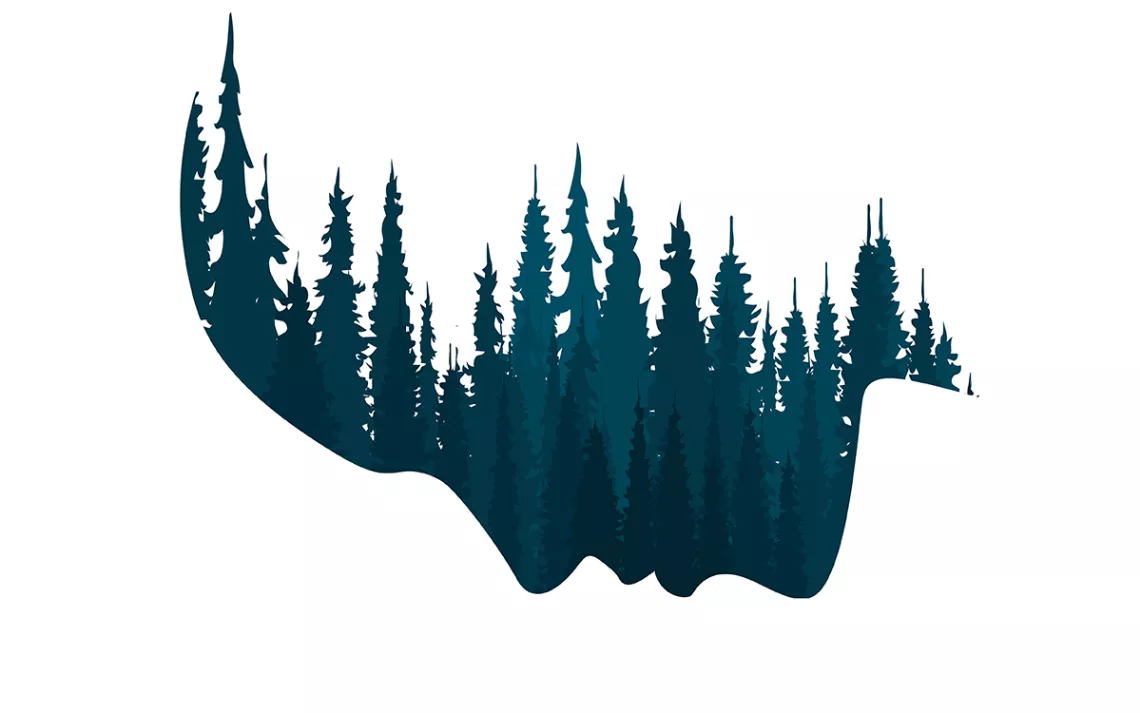
Illustration by Lydiia Moor
Excerpted from I Have Been Assigned the Single Bird. Reprinted by permission of University of Georgia Press.
One afternoon, during the second September of my father’s stay in a nursing home, I stood near his bed and pressed my forehead against the window. Through the glass, I could hear the muffled calls of cardinals and red-eyed vireos. I did not open the windows, for the late summer air steamed like a thick, hot pudding. A variant of dementia afflicted his brain, and so for five years, I oversaw my Dad’s care along with my work as a wildlife biologist and a nature writer. Our hours together were slow but nonetheless sweet.
When we first moved Dad into that room, the emerald light filtering through the windows had reminded me of swimming underwater in a warm river. The view from his window wasn't really so bad, like you might fear kudzu-mediated sunlight could be. But I noticed that many of the tall pines around the nursing home were dying under the weight of the vines swarming their living canopies. I saw that those smothering lianas were exactly like the tangles and plaques in my father's brain, how both kudzu and Alzheimer's replace a vibrant living place—a brain once full of inborn competence and memories of long gone houses and long grown children—dissolved those things in super slow motion, replacing them with loss. Dad's drugs, the Namenda and the Aricept, were like winter frost in the forest. For a time, they would keep the plaques in his brain at bay. But link by link, the invasive vines weighted that scaffold of mature trees with blankets of biomass. I could still make out the biggest magnolia, setting its red fall fruit, but I didn't know if it would survive until freezing December nights slashed the tough kudzu back to its knees.
Earth is the brain and the body into which we were born. In some nearly parallel way, we face not only a crisis in numbers of people diagnosed with dementia; as a culture, we are stricken with this disease and its attending violence. For why else would we knowingly destroy the planet that sustains our very lives? Our Western economic and political systems, all the ways we personally consume, and give over our power to corporations and oligarchs—those are the illnesses that are killing our planet. When you have the physical disease, like my father did, you experience it alone. But our cultural dementia—we are in this together.
For Earth, the dementing disease—our system of economic dominance—has terminated the Cenozoic era, the time of this planet’s maximum flowering and biodiversity, and replaced it with the largest extinction event in 65 million years. Our industrial civilization also has induced an apparently unstoppable climate crisis of epic proportions.

In his last years, I did for my father everything that I could, with the full and gathering knowledge of the eventual outcome. I knew he would die and he did. Is our Earth also terminally ill? Does the human-induced pace of species extinction and climate crisis ensure that we will also lose our Mother?
I believe that we can redeem our species. As Amitav Ghosh has written, the derangement of our times is rooted in how we live. That’s the difference between my father’s illness and the illness of Earth: The latter is animated by cumulative human actions, guided by legal and economic systems that treat the natural world as property to be exploited, not as an ecological partner. It follows that we can mitigate, to some extent, the damage to climate and biodiversity.
What is our part, what can each one of us do, to alter the trajectory we ride? How can we bring healing to this world? My deepest desire regarding both my father’s illness and Earth’s biosphere, was to save, to rescue, to ensure continuance. I tried to reconcile my roles as one daughter caring for one father, as one woman attuned at times, to only a single wild bird, while the planet burned. Offering care to those we love is closely similar to standing up for our Earth, I learned. In all cases, we are required to be fierce and full-bodied advocates, in an endless series of small actions, each as important as the next. This story braids the human and the animal, as it must, for we can never be separate.
Our work has to start now, and it has to be swift. The systems of power that have done the damage will not lead, nor should they be allowed. We’re on our own, but we are billions.
 The Magazine of The Sierra Club
The Magazine of The Sierra Club
